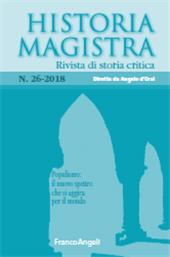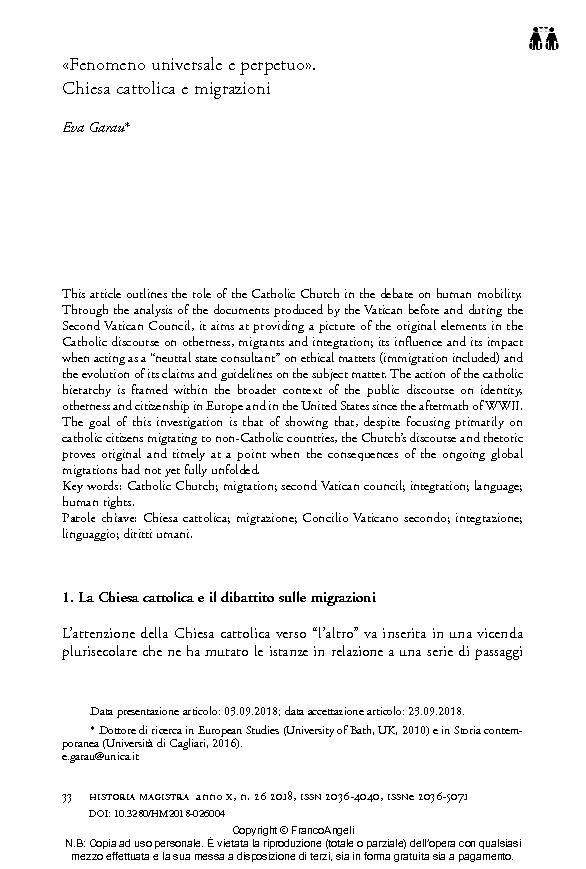Fenomeno universale e perpetuo : Chiesa cattolica e migrazioni
33-50 p.
This article outlines the role of the Catholic Church in the debate on human mobility. Through the analysis of the documents produced by the Vatican before and during the Second Vatican Council, it aims at providing a picture of the original elements in the Catholic discourse on otherness, migrants and integration; its influence and its impact when acting as a "neutral state consultant" on ethical matters (immigration included) and the evolution of its claims and guidelines on the subject matter. The action of the catholic hierarchy is framed within the broader context of the public discourse on identity, otherness and citizenship in Europe and in the United States since the aftermath of WWII. The goal of this investigation is that of showing that, despite focusing primarily on catholic citizens migrating to non-Catholic countries, the Church's discourse and rhetoric proves original and timely at a point when the consequences of the ongoing global migrations had not yet fully unfolded. [Publishers' text].
-
Articoli dello stesso fascicolo (disponibili singolarmente)
-
Informazioni
Codice DOI: 10.3280/HM2018-026004
ISSN: 2036-5071
PAROLE CHIAVE
- Chiesa cattolica, migrazione, Concilio Vaticano secondo, integrazione, linguaggio, diritti umani
- Catholic Church, migration, second Vatican council, integration, language, human rights



